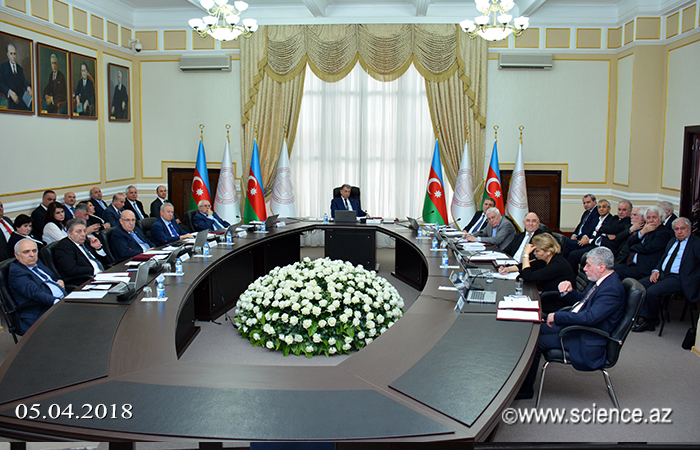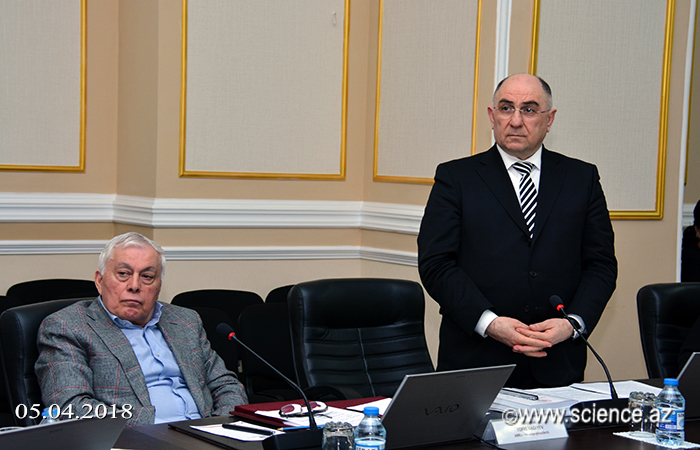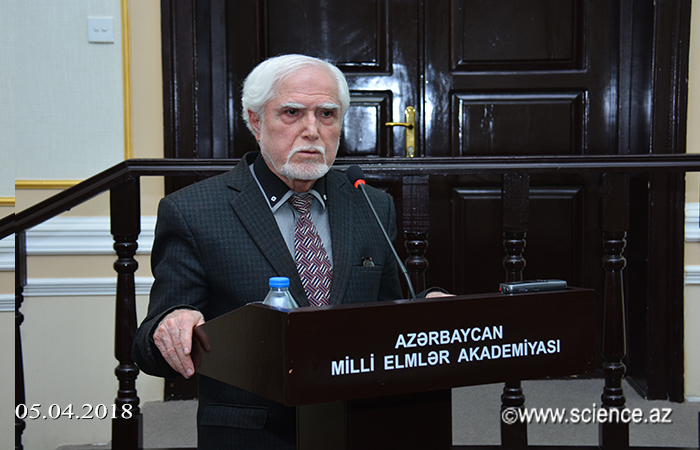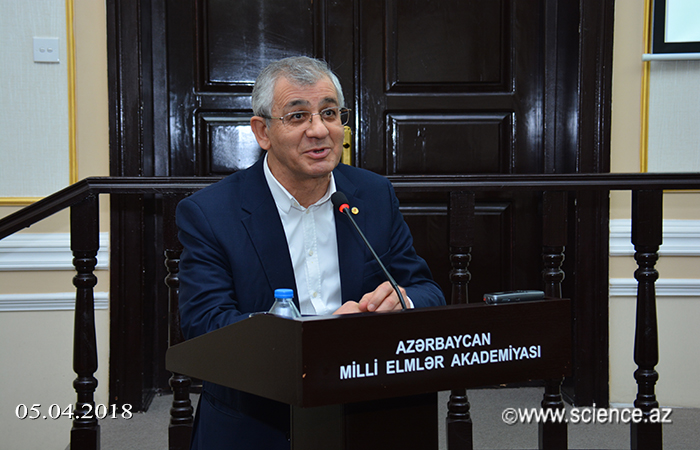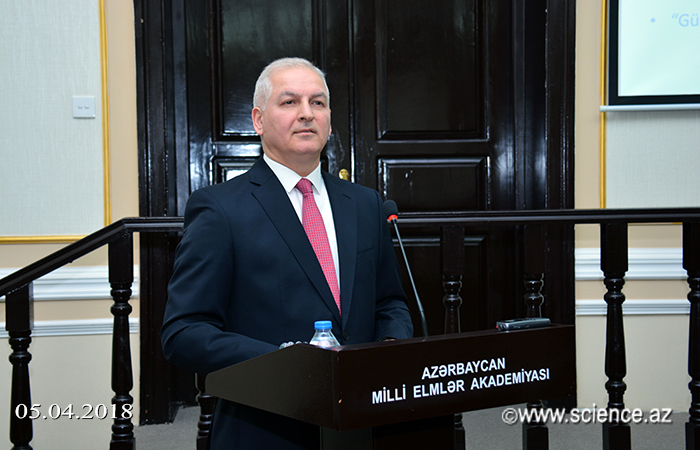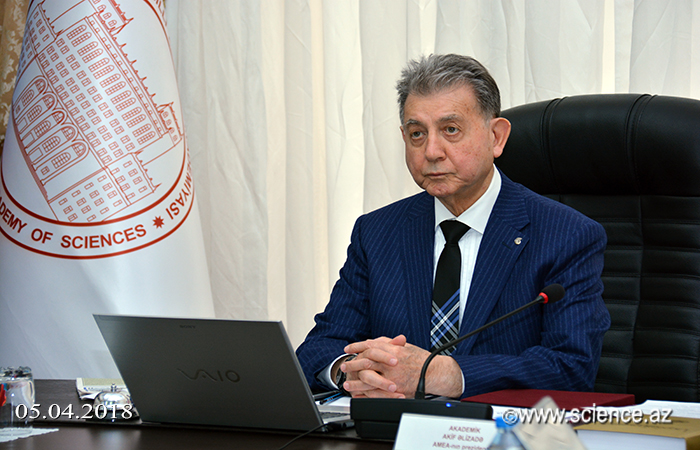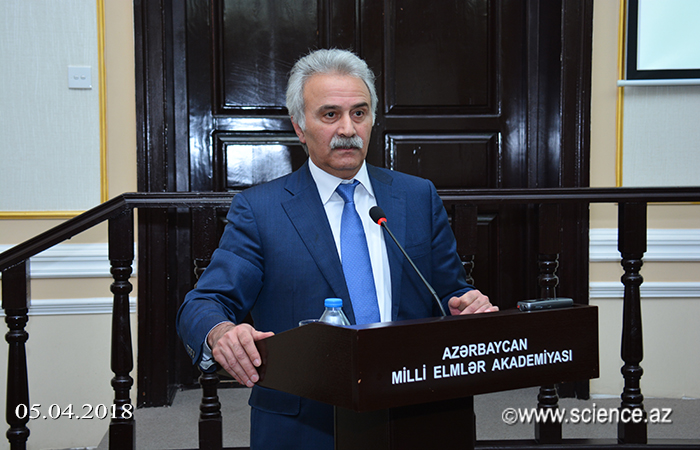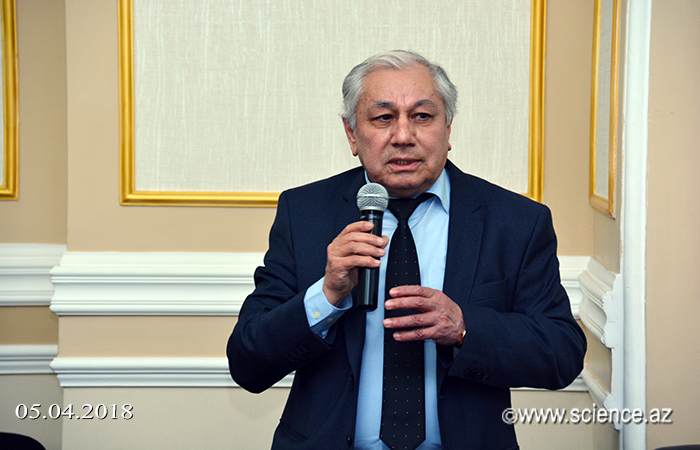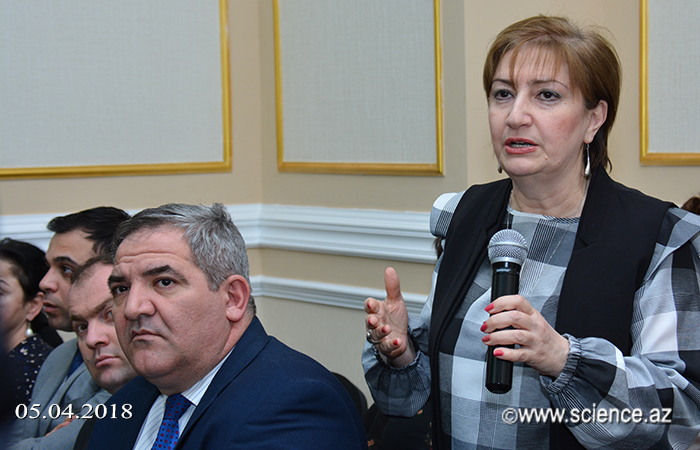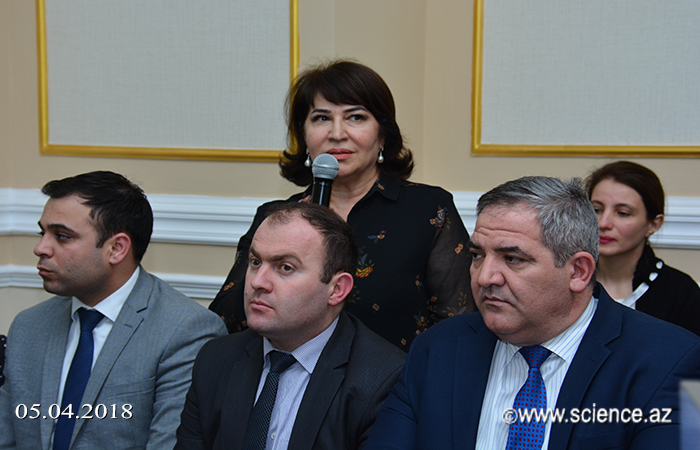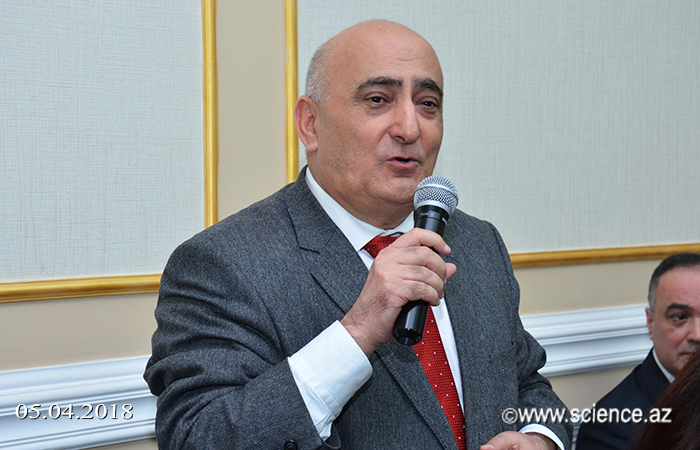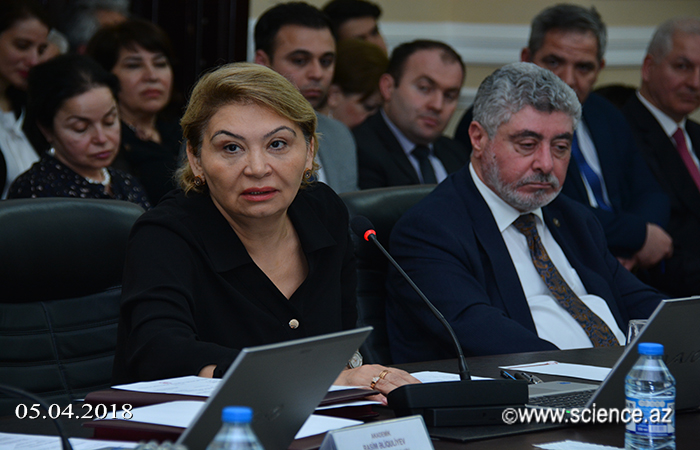- A-
- A
- A+
Scientific report on the prospects of researching archival sources of the Ottoman period
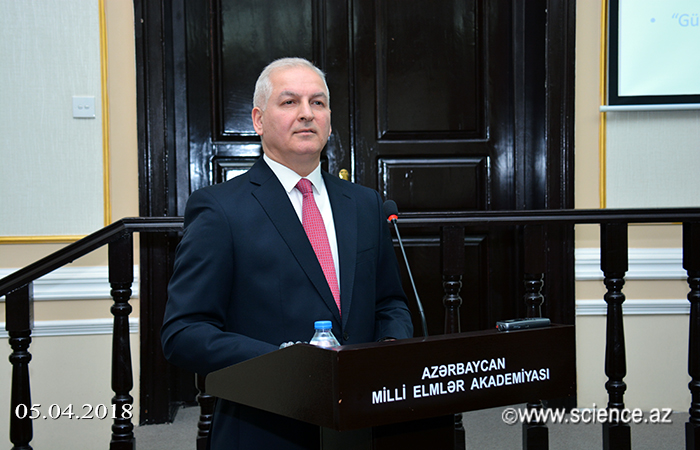
At a regular meeting of the Presidium of the Azerbaijan National Academy of Sciences, which was held on April 5 a scientific report was presented by Deputy Director on scientific affairs of the Institute of Oriental Studies after academician Z.Bunyatov, active member of ANAS Shahin Mustafayev on "Archival sources of the Ottoman period on the history of Azerbaijan of the Middle Ages (tax registers): the significance and prospects of the study".
Academician said that, one of the important tasks facing modern domestic medieval studies is the discovery of new written sources reflecting our history in various manuscripts and libraries of the world and their study. In his report, the scientist spoke about written sources created in the Middle East and occupying an important place in the study of the history of Azerbaijan of the Middle Ages. He noted that, in our historiography, among historical sources both in number and in importance, Ottoman sources possess great importance, most of all attention is drawn to archival documents called "tax registers" covering the period from the end of the XVI century to the 20-ies of XVIII century.
Academician Sh.Mustafayev said that, in the Middle Ages important typological differences existed between the Ottoman and Western European societies. Noting that, unlike the feudal societies of Europe, in the Ottoman Empire, most of the land fund was in the hands of the state and the right to collect taxes belonged to him, the scientist added that, in the absence of modern vehicles and information technology, at that time in the collection taxes, serious accounting and registration work was carried out: "In the Ottoman Empire, for more than four centuries, a large number of financial and tax registers of various types were used. Today, most of these documents are kept in the archives of Turkey, Bulgaria, Hungary and other countries. "
Academician also stressed that, since the middle of the last century, extensive work has been carried out to study and publish tax registers in the USA, France, England, Hungary, Bulgaria, Greece, Serbia, Romania, Turkey, Georgia and other countries. He added that archival sources of this type are unique, they are of great importance for studying the socio-economic history of countries whose territory was once part of the Ottoman Empire: "The archival documents contain such important information as the number of cities, towns and villages in the territory of the corresponding administrative unit of the empire, the fund for sowing land and the number of handicraft and trade objects, the exact number of people paying taxes, their names and religious affiliation, social status in accordance with their property, the form and amount of tax paid, etc.".
Academician Sh.Mustafayev noted that these archival sources help to recreate the socio-economic picture existing in the Ottoman Empire and its separate administrative regions, including Azerbaijan, which at certain periods was part of the empire, to follow demographic processes, to receive information about approximate population and its ethno-religious composition: "Based on these sources, we can determine the historical boundaries of countries and provinces that make up the empire, to study their history geographical geography. Important information, reflected in documents and associated with historical toponymal and onomastics, allows to restore historical names of localities, to study, by various parameters, personal names common in some parts of the empire, to define ethnic boundaries and, thus, to obtain important information from the point of view of linguistics".
The report indicated that tax registers compiled in the period from the end of the XVI century to the 20-ies of XVIII century, which are stored today in the archives of Turkey, are important sources for studying the socio-economic history of our country in the Middle Ages. The study of these documents relating to the Ganja-Garabagh, Irevan, Gazakh-Borchalin, Tabriz, Ardabil, Urmia, Maragin, Khoy, Makin and other areas, their translation into their native language and publication were recognized as one of the most important tasks facing domestic Ottomanism.
The scientist said that the study of the history of the Ottoman Empire in our country, including the first systematic study and publication of tax registers of the Ottoman period is associated with the name of academician Ziya Bunyatova. He noted that on the initiative of the academician since the 80's the scientists of the Institute of Oriental Studies conducted consecutive works in this field, tax registers related to the Irevan, Nakhchivan, Ganja-Garabagh, Borchaly-Gazakh, Lori, and Ardebil zones were translated, published and studied.
The speaker stressed that, the scientific activity in this direction is still ongoing today and spoke about the importance of a large-scale project called "Transliteration, translation and publication of Ottoman sources (tax registers) on the history of the South Caucasus and Azerbaijan", which is carried out under his leadership with the support of the Development Fund under the President of the Republic of Azerbaijan. The academician said that within the framework of the project the specialists of the scientific institution in which he works and the Institute of Literature after Nizami Ganjavi of ANAS are studying tax registers related to the Tiflis, Tabriz, Urmia and Maragin regions, they carried out transliteration and translation of their manuscript texts and prepared documents for printing. The scientist added that after long-term studies in this field, the preparation of the national historical atlas of Azerbaijan covering a certain period of history is envisaged.
After listening the report, academician Rasim Alguliyev, Nailya Velikhanly, Fakhraddin Gadirov, corresponding members of ANAS - Musa Gasimli, Akif Musayev, doctors of historical sciences Nargiz Aliyeva, Shakhin Farzaliyev, rector of Khazar University Hamlet Isakhanli and others made comments and suggestions on the topic.
Further, the decision of the Presidium was adopted. The Institute of Oriental Studies was given the appropriate assignments aimed at further development of historical Ottomanism.
©All rights are reserved. Citing to www.science.gov.az is necessary upon using news.
Similar News
Links
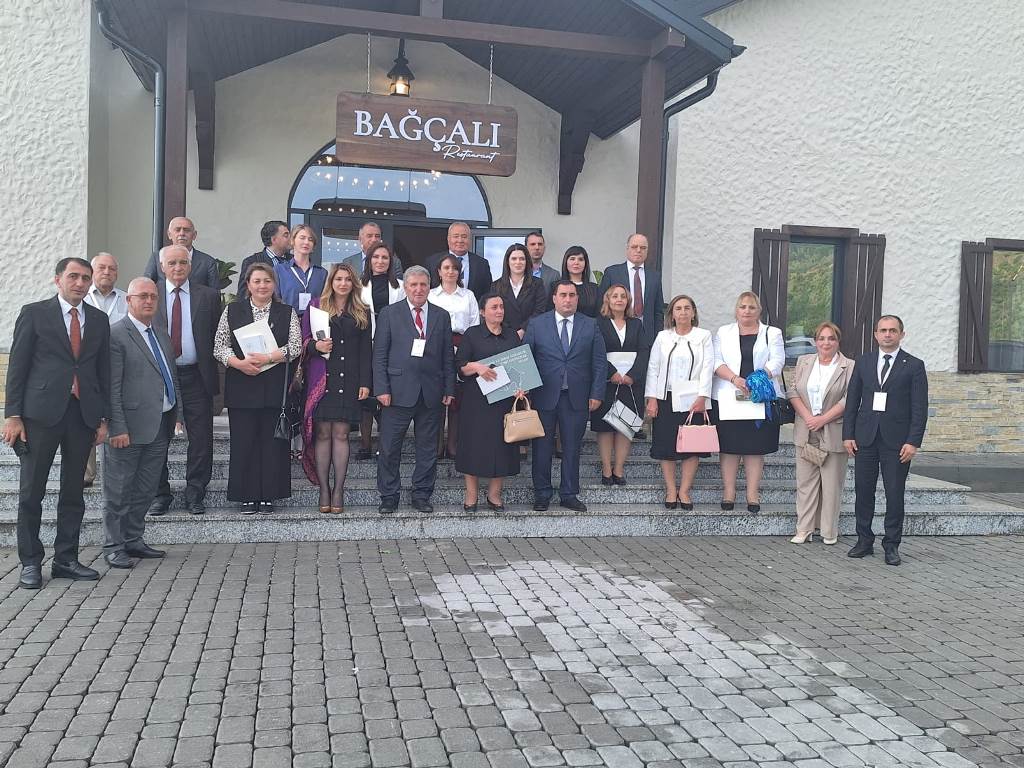

 Elm TV
Elm TV
 Photo
Photo
 Video
Video
